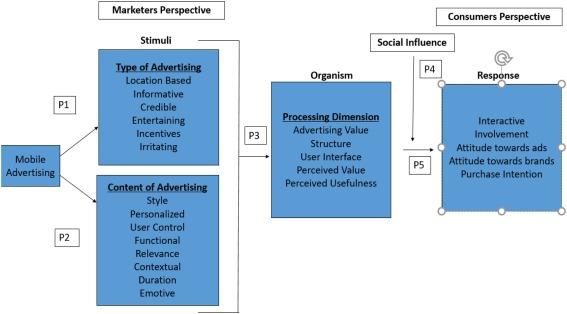Maximizing Parental Involvement for Effective Remote Learning: Strategies and Benefits
The shift to remote learning has transformed education, presenting both opportunities and challenges for students, teachers, and parents alike. As schools continue to embrace online education, one essential factor for student success is maximizing parental involvement. In this comprehensive guide, we’ll explore actionable strategies, proven benefits, and practical insights to help parents and educators work together for effective remote learning.
Why Parental Involvement Matters in remote Learning
Parental involvement has always played a crucial role in a child’s education. However, with the rise of remote and online learning, the need for parent engagement has grown exponentially. When parents actively participate in their child’s learning, students tend to stay motivated, organized, and focused—all key ingredients for remote learning success.
- Increases accountability: Parents help students keep track of assignments and deadlines.
- Boosts motivation: Regular encouragement fosters a positive attitude towards learning.
- Enhances communication: Parents act as a bridge between students and teachers.
Key Benefits of Parental Involvement in Remote Learning
Understanding the benefits is the frist step towards maximizing parental support. Here’s how active parent participation can transform the remote learning experience:
1. Improved Academic performance
- Students with involved parents consistently perform better in online assessments.
- Parental oversight helps minimize distractions and maintain study routines.
2. strengthened Emotional Well-being
- Remote learning can feel isolating; engaged parents provide crucial moral support.
- Open communication aids in recognizing and addressing emotional challenges.
3. Enhanced Digital Literacy
- Parents help their children navigate technology and online platforms safely.
- Joint exploration of digital tools fosters problem-solving and adaptability.
Effective Strategies to Maximize parental Involvement
Want to boost the positive impact of parental engagement in remote learning? These strategies empower both parents and educators:
1. Establish Clear Communication Channels
- set up regular virtual meetings or check-ins between parents and teachers.
- use user-kind platforms (such as google Classroom or ClassDojo) for ongoing updates.
- Encourage parents to ask questions and share feedback regularly.
2. Create a Structured Learning Surroundings at Home
- Designate a quiet, organized space for online learning activities.
- Encourage routines: set specific hours for lessons, breaks, and homework.
- Minimize distractions by limiting access to phones, games, and television during learning sessions.
3. Foster Collaboration and Support
- Invite parents to participate in virtual group activities or online clubs.
- Share tips and resources for supporting children’s learning at home.
- Recognize parents’ contributions in emails and online meetings,building a sense of community.
4. Utilize Technology for Parental Engagement
- Leverage apps and platforms that allow parents to track progress and assignments.
- Offer tutorials to increase parents’ digital literacy skills.
- Organize virtual workshops or webinars for parents on remote learning tools and methods.
5. Encourage Open Dialog and Positive Feedback
- Make it easy for parents to voice concerns or suggestions.
- Celebrate student successes and efforts through regular updates and newsletters.
- Provide constructive feedback and actionable advice for improvement.
Case Studies: Prosperous Parental Involvement in Remote learning
Real-world examples highlight the transformative power of parental partnership in online learning:
Case Study 1: The Power of daily Check-Ins
A group of elementary school teachers in California implemented daily 10-minute virtual check-ins with both students and parents. The result? Increased homework submission rates, more consistent attendance, and fewer behavioral issues. Parents felt more confident supporting their children, and teachers noticed higher student motivation.
Case Study 2: Parent-led Online Clubs
In a New York-based middle school,parents volunteered to run virtual clubs for activities such as coding,reading,and art. These extracurricular sessions gave students something to look forward to, fostered social connections, and allowed parents to actively contribute to the remote learning culture.
Case Study 3: Collaborative Problem-Solving
During the pandemic,a school district in Texas organized virtual workshops for parents on managing screen time and digital distractions. Feedback was overwhelmingly positive; parents gained new strategies, students reported better focus, and teachers observed improved classroom participation.
First-Hand Experience: Parents Share Their Journey
Many parents have found creative and effective ways to boost their child’s remote learning success. Here are some insights from families who’ve made it work:
“We scheduled daily learning blocks and spent 10 minutes before school discussing goals. Our son felt more in control and motivated each morning.”—Linda, parent of a 3rd grader
“Joining a parent-teacher group online helped me find resources and support. My daughter knew I was invested, and she started taking her assignments more seriously.”—Frank, parent of a 7th grader
Practical Tips for Parents and Educators
Incorporating these tried-and-true tips can make a world of difference in maximizing parental involvement:
- Set realistic expectations: Not every moment will be perfect—focus on progress, not perfection.
- Stay flexible: Adjust routines as needed to accommodate family schedules and unforeseen challenges.
- Communicate proactively: Reach out to teachers early if your child faces difficulties.
- Encourage independence: Let students take responsibility for their learning, with guidance.
Conclusion: The Lasting Impact of parental Involvement
Maximizing parental involvement in remote learning is more then a short-term solution—it’s a recipe for lifelong academic success and emotional growth. By embracing collaboration, open communication, and supportive routines, parents and educators can confidently navigate the online education landscape together.the result? Engaged learners, stronger families, and a brighter educational future for all.
To learn more or find resources tailored to your needs, don’t hesitate to connect with educators, join parent networks, or explore our recommended toolkit on effective remote learning strategies for families.

